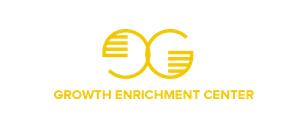
Did you know that 85% of our daily thoughts are repetitive? It's intriguing to ponder how these recurring thoughts may contribute to perpetuating self-fulfilling beliefs in your mind. As you navigate through the complexities of your thoughts and beliefs, it's crucial to delve into the underlying factors that fuel this cycle. By understanding the mechanisms at play, you can gain valuable insights into how to challenge and reshape these beliefs for a more empowered mindset.
Cognitive Biases
When you embrace cognitive biases, you unknowingly allow your mind to be swayed by preconceived notions, leading you down a path of self-fulfilling beliefs. These biases act as invisible forces shaping your thoughts, decisions, and interactions with the world around you. Confirmation bias, for instance, causes you to seek out information that aligns with your existing beliefs while disregarding conflicting evidence. This tendency can trap you in a cycle where your beliefs are constantly reinforced, hindering personal growth and understanding.
Another common bias is the halo effect, where your initial positive impression of someone or something clouds your judgment of their true capabilities or qualities. By recognizing and challenging these biases, you can begin to break free from their grip and open yourself up to new perspectives and experiences. It's essential to approach situations with a curious and open mind, questioning your assumptions and actively seeking out diverse viewpoints. Embracing cognitive biases is part of being human, but it's how you respond to them that shapes your growth and development journey.
Social Validation
To truly understand the power of social validation, consider how the opinions and actions of those around you influence your own perceptions and behaviors. The impact of social validation on your beliefs is profound, shaping your view of the world and yourself. Here are three key points to help you grasp the significance of social validation:
- Peer Pressure: The desire to fit in or gain approval from others can lead you to adopt beliefs or behaviors that align with the group, even if they differ from your own values.
- Social Comparison: Constantly comparing yourself to others can reinforce certain beliefs about your abilities, appearance, or achievements, influencing your self-perception and confidence.
- Feedback Loop: When your beliefs are consistently validated by those around you, it creates a feedback loop where you seek and interpret information in a way that supports those beliefs, further solidifying them in your mind.
Understanding how social validation impacts your beliefs is essential in breaking free from self-fulfilling patterns and cultivating a more authentic sense of self.
Confirmation Bias

Amidst the complexities of human cognition, Confirmation Bias emerges as a prevalent phenomenon that profoundly influences the way you perceive and interpret information. This cognitive bias nudges you to seek out, recall, and prioritize information that aligns with your existing beliefs or hypotheses. It's like wearing tinted glasses that make everything appear in a way that confirms what you already think or feel.
It's important to recognize that Confirmation Bias isn't about seeking the truth; it's about seeking validation. By gravitating towards information that supports your preconceptions, you might unintentionally overlook contradictory evidence or alternative perspectives. This tendency can hinder personal growth, limit your understanding of complex issues, and lead to misguided decision-making.
To combat Confirmation Bias, challenge yourself to actively seek out diverse viewpoints, question your assumptions, and remain open to changing your mind based on new information. Embracing intellectual curiosity and a willingness to engage with differing opinions can help you break free from the constraints of Confirmation Bias, fostering a more nuanced and insightful worldview.
Emotional Resonance
In exploring Emotional Resonance, you're encouraged to delve into the profound impact of emotions on your beliefs and decision-making processes. Emotions play a significant role in shaping your beliefs, often leading to self-fulfilling prophecies and reinforcing certain thought patterns.
- Emotional Influence: Emotions can color your perceptions, influencing how you interpret information and reinforcing beliefs that align with your current emotional state.
- Gut Feelings: Trust your intuition, but be mindful of how emotions can cloud judgment and perpetuate beliefs that may not serve your best interests.
- Empathy and Compassion: Understanding the emotions of others can broaden your perspective, challenging your existing beliefs and promoting growth and self-awareness.
Habitual Thought Patterns

Consider how your habitual thought patterns shape your reality, influencing your perceptions and actions in ways you may not always be aware of. The thoughts that frequently occupy your mind have a powerful impact on how you interpret the world around you. If you often find yourself thinking negatively, you may start to view situations through a pessimistic lens, leading to missed opportunities and increased stress. On the other hand, cultivating positive thought patterns can help you approach challenges with optimism and resilience.
It's essential to recognize when your mind falls into repetitive cycles of thinking. By acknowledging these patterns, you can begin to challenge and reframe them. Start by paying attention to the thoughts that arise in different situations. Are they helping or hindering your progress? Through mindfulness and self-reflection, you can gradually shift towards more constructive thought patterns that align with your goals and values.
Frequently Asked Questions
How Do Self-Fulfilling Beliefs Affect Decision-Making Processes?
When self-fulfilling beliefs shape your decisions, they can create a cycle of validation. Your thoughts influence actions, leading to outcomes that mirror those initial beliefs. Stay aware, challenge assumptions, and empower yourself to break free.
Can Self-Fulfilling Beliefs Be Changed Through Therapy or Counseling?
Yes, self-fulfilling beliefs can be changed through therapy or counseling. You have the power to challenge and reframe these beliefs with professional support. Embrace the journey of self-discovery and growth, knowing change is within reach.
What Role Does Self-Awareness Play in Breaking Self-Fulfilling Beliefs?
In breaking self-fulfilling beliefs, self-awareness is your guiding light. By recognizing your patterns, thoughts, and emotions, you gain power to challenge and transform them. Embrace self-awareness as your ally on this journey.
Are There Specific Exercises to Challenge Self-Fulfilling Beliefs?
You can challenge self-fulfilling beliefs through various exercises. By confronting negative thoughts head-on, replacing them with positive affirmations, and seeking evidence that contradicts your limiting beliefs, you can shift your mindset and empower yourself.
How Do Self-Fulfilling Beliefs Impact Relationships With Others?
In relationships, your self-fulfilling beliefs shape interactions. Positive beliefs foster trust, intimacy, and growth, while negative ones breed doubt and distance. Embrace awareness, challenge assumptions, and communicate openly to cultivate healthier connections with others.
Conclusion
So, as you navigate through life, remember that we all have our own set of beliefs that can sometimes cloud our judgment.
It's important to be open-minded and willing to challenge those beliefs, even if it feels uncomfortable.
By recognizing and overcoming cognitive biases, seeking diverse perspectives, and staying mindful of our emotional reactions, we can break free from self-fulfilling beliefs and create a more enriching and fulfilling life experience.
Just take that first step towards growth, and watch the possibilities unfold.


